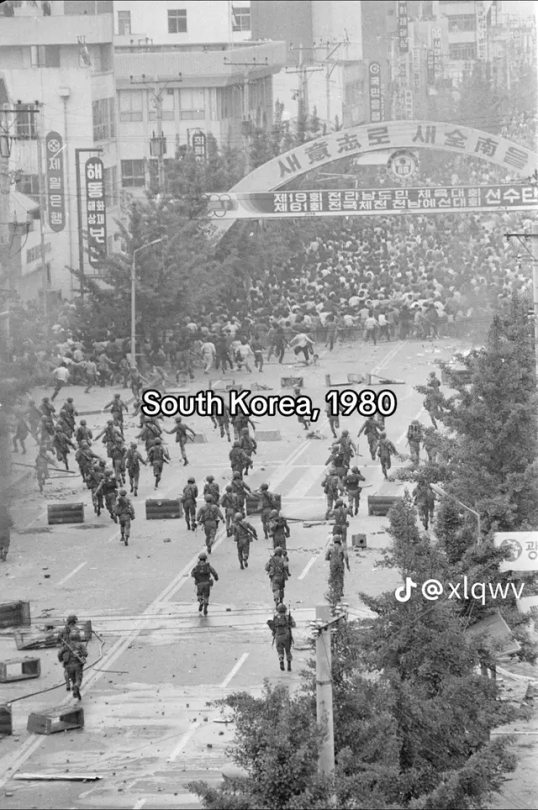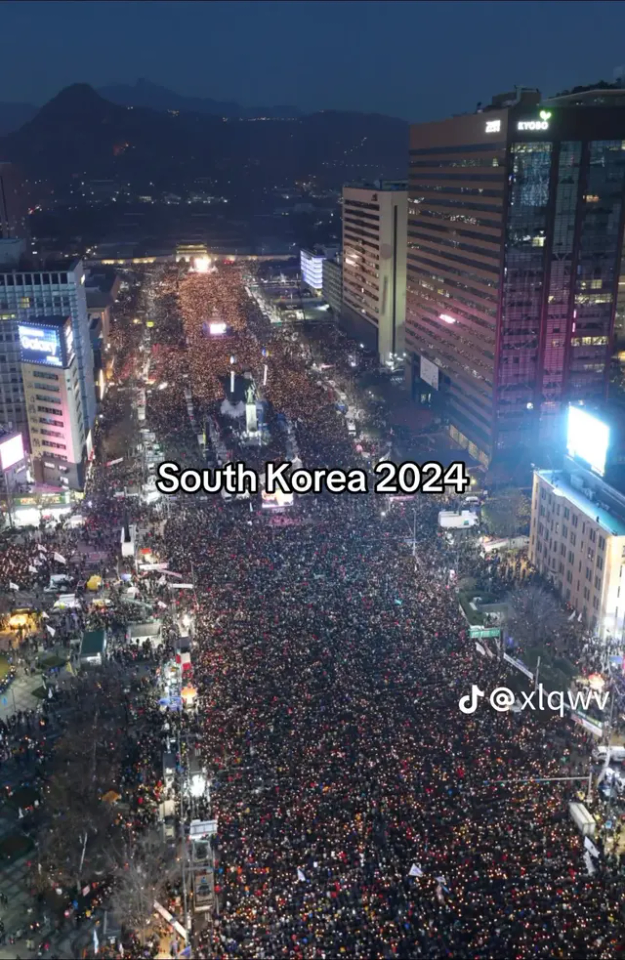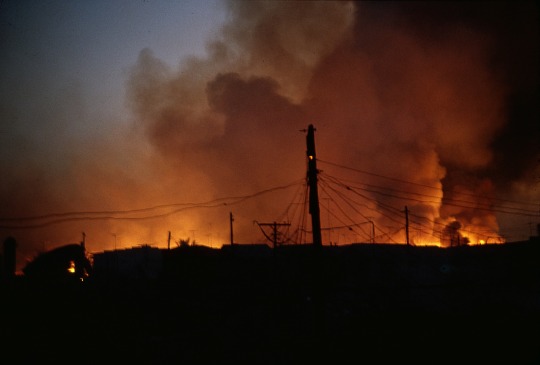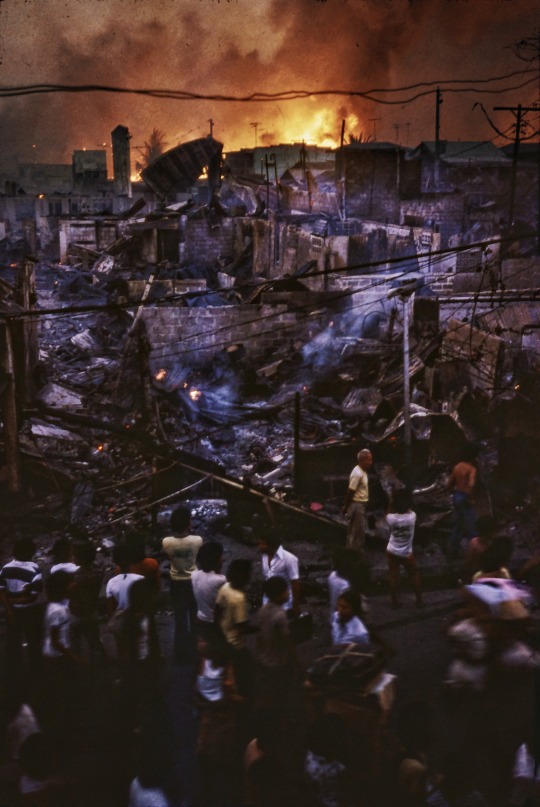#MARTIALLAW
Explore tagged Tumblr posts
Text

1978 Philippines, Manila, Tondo, April 7th, Ferdinand Marcos reelection, martial law
#1978#philippines#luzon#manila#ferdinandmarcos#reelection#tondo#fire#1970s#vintage#analog#filmphotography#slum#streetphotography#blackandwhite#martiallaw#theseventies#photography#original photographers#pierre wayser
32 notes
·
View notes
Text


Its the gwangju uprising all over again
#korea#southkorea#yoonseokyeol#gwanjuuprising#martiallaw#history#fyp#foryou#2024#politics#uprising#protests#resistance#resist#south korea
10 notes
·
View notes
Link
Trump and Flynn - both seditious low-life anti-American scum who collude with enemies of the United States - wanted to declare martial law in order for Trump to stay in office.
#TraitorTrump#LoserTrump#TrumpCrimeSpree#Jan6th#CorruptGOP#GOPTraitors#MichaelFlynn#MrTrump#MartialLaw#BigLie
20 notes
·
View notes
Photo

My Countryhumans art book ! (+Subreddit humans/ SubredditHumanised) - female north (on Wattpad) https://www.wattpad.com/967588554-my-countryhumans-art-book-%2Bsubreddit-humans?utm_source=web&utm_medium=tumblr&utm_content=share_reading&wp_originator=PyewNP2%2Fqeg5toq3yDIzt%2FbAxe3%2FA6JQ3yai3xFN6fTknremx7SvFGcY9SE3RaRR9VUjxHV9dQyilVIvokZpqjLpHlH7V0yNM1qX%2F90n%2F2PoKdb4tPjkHPDIVzil66LO all my post from amino goes here!
#anticountryhumans#art#artbook#bangladesh#britain#chcxach#china#countryhumans#countryhumanscringe#egypt#fascistitaly#france#germany#italy#japaneseempire#lebanon#martiallaw#northkorea#philippines#romania#southkorea#spain#subreddithumans#uk#diversos#books#wattpad#amreading
4 notes
·
View notes
Text
Martial Law Controversy: South Korea’s President Accused of Insurrection
By Anastasios Gordon Sekandi – updated at 23:19 EAT Sunday 26 Jan 2025 (HICGI) – Suspended South Korean President Yoon Suk Yeol has been indicted by prosecutors on insurrection charges following his brief imposition of martial law. South Korean President Yoon Suk-Yeol speaks to the nation at the Presidential Office in Seoul, South Korea on December 7, 2024. Courtesy Photo. In early December,…
0 notes
Text
South Korea's Parliament Votes to Impeach President Yoon Suk Yeol.
South Korea’s Parliament Votes to Impeach President Yoon Suk Yeol. In a historic move, South Korea’s parliament voted to impeach President Yoon Suk Yeol on December 14, 2024, following his controversial attempt to impose martial law. The National Assembly passed the motion with a vote of 204-85, leading to the suspension of Yoon’s presidential powers and duties. Prime Minister Han Duck-soo has…
0 notes
Text
Martial Law: A Mechanism of Governance and Controversy
Historical Context Legal Framework and Implications Balancing Security and Liberty Modern-Day Considerations Conclusion Martial Law: A Mechanism of Governance and Controversy Martial law is a temporary imposition of direct military control over normal civil functions or suspension of civil law by a government, often invoked during emergencies such as war, natural disasters, or civil unrest. This extraordinary measure is frequently controversial, as it involves the suspension of constitutional freedoms and the transfer of significant power from civilian authorities to the military. Understanding the concept of martial law requires an exploration of its historical applications, legal implications, and the delicate balance between security and liberty.

Historical Context The history of martial law stretches back centuries and is tied to the concept of state sovereignty and public order. In medieval Europe, kings and military leaders assumed emergency powers during times of invasion or rebellion. In the modern era, martial law has been declared in various countries under different circumstances, shaping its perception as either a necessary tool for maintaining order or a pretext for authoritarian rule. For example, in the United States, martial law has been declared sparingly, such as during the Civil War under President Abraham Lincoln and during the aftermath of the Pearl Harbor attack in Hawaii. In both cases, civil liberties were curtailed to address perceived threats to national security. In contrast, the declaration of martial law in countries like the Philippines under Ferdinand Marcos (1972-1981) showcased its potential for abuse, where it was used to suppress dissent, consolidate power, and perpetuate authoritarianism. Legal Framework and Implications The legal basis for martial law varies by jurisdiction but generally allows the executive branch to take extraordinary actions in the face of grave threats. In democratic systems, these powers are typically constrained by constitutional or statutory safeguards. For example, many constitutions require legislative approval for prolonged periods of martial law, judicial oversight to prevent abuse, and clear definitions of the conditions that warrant its declaration. These mechanisms are designed to ensure that the extraordinary powers granted under martial law are exercised transparently and remain subject to checks and balances. However, martial law often involves the suspension of rights such as habeas corpus, freedom of assembly, and freedom of the press. The suspension of habeas corpus, for instance, allows authorities to detain individuals without providing a court hearing, significantly undermining individual freedoms and the right to due process. Freedom of assembly may also be curtailed, preventing citizens from organizing protests or public gatherings, while restrictions on the press stifle the flow of information, limiting public awareness and debate. These measures, although intended to restore order, can have far-reaching consequences for civil liberties if not carefully monitored and justified. The lack of accountability inherent in military governance exacerbates these challenges. Military personnel, often operating outside the usual framework of civilian oversight, may not be trained in or bound by the same standards of transparency and human rights protections. This creates opportunities for abuse, including unlawful detentions, censorship, and even violence against civilians. Such actions can erode democratic institutions, delegitimize the government, and foster public distrust. Furthermore, the transition back to civilian rule following the imposition of martial law is often fraught with difficulty, as it requires rebuilding trust, reestablishing norms, and addressing any abuses that occurred during the period of military control. Balancing Security and Liberty The invocation of martial law represents a fundamental tension between the state's responsibility to ensure security and its obligation to uphold individual freedoms. Proponents argue that martial law can be essential in quelling chaos, restoring order, and protecting citizens from harm during crises. They cite instances where decisive action has prevented societal collapse and maintained territorial integrity. Critics, however, emphasize the risks of martial law, including its potential for abuse and long-term harm to democratic governance. Historical precedents show that once martial law is declared, the return to civilian rule can be fraught with difficulty. Additionally, the concentration of power in the hands of the military raises concerns about the erosion of civil liberties and the potential for authoritarian overreach. Modern-Day Considerations In the contemporary world, the invocation of martial law faces additional scrutiny due to advancements in technology and the global emphasis on human rights. The presence of international watchdogs, the role of social media in mobilizing dissent, and the availability of alternative crisis management strategies all contribute to the debate over its necessity and effectiveness. Moreover, the increasing emphasis on resilience and emergency preparedness has led many governments to explore non-military solutions to crises. Enhanced coordination between civilian agencies, investment in disaster response infrastructure, and reliance on international support are often viewed as preferable alternatives to martial law. These approaches aim to mitigate emergencies without undermining democratic values or jeopardizing individual rights. Conclusion Martial law remains a contentious instrument of governance, representing both the potential to safeguard a nation and the risk of undermining its democratic foundations. While it can provide a temporary solution during dire crises, the historical record demonstrates the need for stringent safeguards and oversight to prevent abuse. A society’s commitment to balancing security with liberty ultimately determines whether martial law becomes a protective measure or a pathway to despotism. As such, the invocation of martial law must always be scrutinized through the lens of its necessity, proportionality, and adherence to the principles of justice and human rights. Read the full article
0 notes
Text
South Koreans react with anger to President Yoon Suk Yeol's thwarted martial law declaration, igniting protests and calls for his impeachment.
0 notes
Text
#PMQs#SpotifyWrapped2024#PoliticsLive#LEIWHU#GivingTuesday#SouthKorea#Greece#Afghanistan#KemiBadenoch#MarcGuehi#LukeShaw#Mateta#Vardy#GreggWallace#TheFA#EstherMcVey#TimMontgomerie#AdamCrafton#ElginMarbles#Parthenon#Matterhorn#Christmas#FairytaleofNewYork#MartialLaw#Taliban#$XDC#$AUTOS#Bovaer#Yoon#Sullivan
0 notes
Text
#PMQs#SpotifyWrapped2024#PoliticsLive#LEIWHU#GivingTuesday#XDC#AUTOS#XDefiant#MartialLaw#FairytaleOfNewYork#Parthenon#TheFA#Bovaer#EmilySheffield#Porridge#Cake#Sullivan#Raine#Taliban#Afghanistan#Leicester#JohnSmith#Matterhorn#BritishRail#Yoon#azealia#Mateta#kilman#JohnBoyega#Vardy
0 notes
Text

1978 Philippines, Manila, Tondo, April 7th, Ferdinand Marcos reelection, martial law
#1978#philippines#luzon#manila#tondo#ferdinandmarcos#martiallaw#photography#colorphotography#vintage#analogphotography#filmphotography#photooftheday#photographylovers#rollei35se#original photographers#pierre wayser
19 notes
·
View notes
Text
Democracy’s Fiasco — Democracy Cannot Defend Freedom
This year, the Koreans proved that they could defend democracy. Can the Americans do so next year?
youtube
via @YouTube #korea #korean #martiallaw #korea #korean #martiallawsouthkorea #Taiwan
1 note
·
View note
Text

Rumors are now going around on Social Media elsewhere that another Incident is going to be Staged AGAIN, just like what the Father did at Liwasang Bonifacio Decades ago, in preparation for another declaration of Martial Law. If Martial Law is indeed declared, then this (Facebook) Page will likely be willingly deactivated, hopefully only temporarily.
So you will all have to follow me elsewhere on my other lesser known Social Media Accounts. The Dutertes will have to make another move if Martial Law happens again as they cannot afford to sit still then, such a Law will allow this Administration to go after them even faster and easier.
Good luck to all Filipinos, good luck to the Philippines. We are now heading into this Situation simply because of the Manipulations of the Oligarchs and the United States (US) to preserve their Interests here in the Philippines.
0 notes
Text
#PMQs#SpotifyWrapped2024#PoliticsLive#LEIWHU#GivingTuesday#SouthKorea#Greece#Afghanistan#KemiBadenoch#MarcGuehi#LukeShaw#Mateta#Vardy#GreggWallace#TheFA#EstherMcVey#TimMontgomerie#AdamCrafton#ElginMarbles#Parthenon#Matterhorn#Christmas#FairytaleofNewYork#MartialLaw#Taliban#$XDC#$AUTOS#Bovaer#Yoon#Sullivan
0 notes
Text
#PMQs#SpotifyWrapped2024#PoliticsLive#LEIWHU#GivingTuesday#XDC#AUTOS#XDefiant#MartialLaw#FairytaleOfNewYork#Parthenon#TheFA#Bovaer#EmilySheffield#Porridge#Cake#Sullivan#Raine#Taliban#Afghanistan#Leicester#JohnSmith#Matterhorn#BritishRail#Yoon#azealia#Mateta#kilman#JohnBoyega#Vardy
0 notes
Text

1978 Philippines, Manila, Tondo , April 7th, Ferdinand Marcos reelection, martial law
#1978#philippines#manila#tondo#vintage#analog#filmphotography#1970s#martiallaw#fire#street#streetphotography#photo#slum#streetphotos#photography#reelections#ferdinandmarcos#rollei35se#original photographers#pierre wayser
13 notes
·
View notes